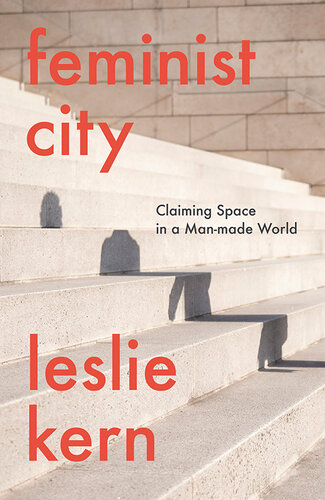
Feminist City
Claiming Space in a Man-Made World
کتاب های مرتبط
- اطلاعات
- نقد و بررسی
- دیدگاه کاربران
نقد و بررسی

March 16, 2020
In this insightful scholarly work, Kern (Sex and the Revitalized City), a professor of geography and environment at Mount Allison University, uses the framework of “feminist geography” to explore how women interact with and are affected by urban spaces. Contending that the structural realities and power dynamics of cities privilege white males, Kern shares her personal experiences as a college student “perform acts of safety and precaution” with female friends in Toronto, and as a stroller-pushing, multitasking mother attempting to navigate London’s public transportation system. She acknowledges that the space she inhabits as a white, able-bodied woman holds inherent privilege in relation to the experiences of women of color and disabled people, and notes that many things that make affluent white women feel safer, such as avoiding “dangerous” areas and increased policing, negatively impact the lives of sex workers, immigrants, queer people, and minorities, while doing nothing to abolish the patriarchy. Kern defends women’s experiences of fear as rational reactions to the urban environment, and hopes that increased representation among urban planners and policy makers will result in more inclusive cityscapes. Her mix of the personal and the academic reveals the nature of the problem, but offers few concrete answers. This provocative analysis will resonate with theoretically minded feminists.

April 15, 2020
A Canadian professor of geography explores the gendered nature of urban environments and how those environments inform social relationships. Whether it is through skyscrapers that glorify patriarchal "corporate economic power" or guidelines for wind effects that use bodily dimensions corresponding to "an adult male," cities are made to the measure of men. Drawing on feminist, geographical, and sociological studies along with her own experiences as an urban woman, Kern explores how cities impact female bodies. Her own awareness of how gender impacted urban spaces came into clear focus during pregnancy. "People read my protruding belly as if it said, 'rub here please!' " Even after her baby was born, the author found that many urban spaces made her feel unable to juggle the demands of child care, paid employment, and school. In considering women's relationships with each other, she discusses how cities disrupt networking possibilities for low-income and other marginalized women through the destruction of social housing projects. Kern does point out that being alone in an urban environment can also offer many pleasures, but those pleasures are harder to come by for women because they must always contend with the fact that they are always "fair game for harassment and even violence." Activism and protest can connect women to cities in significant ways, but protests that claim to be women-only spaces need to take into account the way they "reproduce systems of privilege and oppression," especially where trans or disabled women are concerned. In the process of creating safe cities, the author further observes that urban revitalization programs that help women tend to make cities less safe for other marginalized groups. Visionary, intelligent, and humane, this book offers intersectional insights into the gendered nature of the modern city to promote "living more justly in an urban world." A timely, thought-provoking study.
COPYRIGHT(2020) Kirkus Reviews, ALL RIGHTS RESERVED.

























دیدگاه کاربران